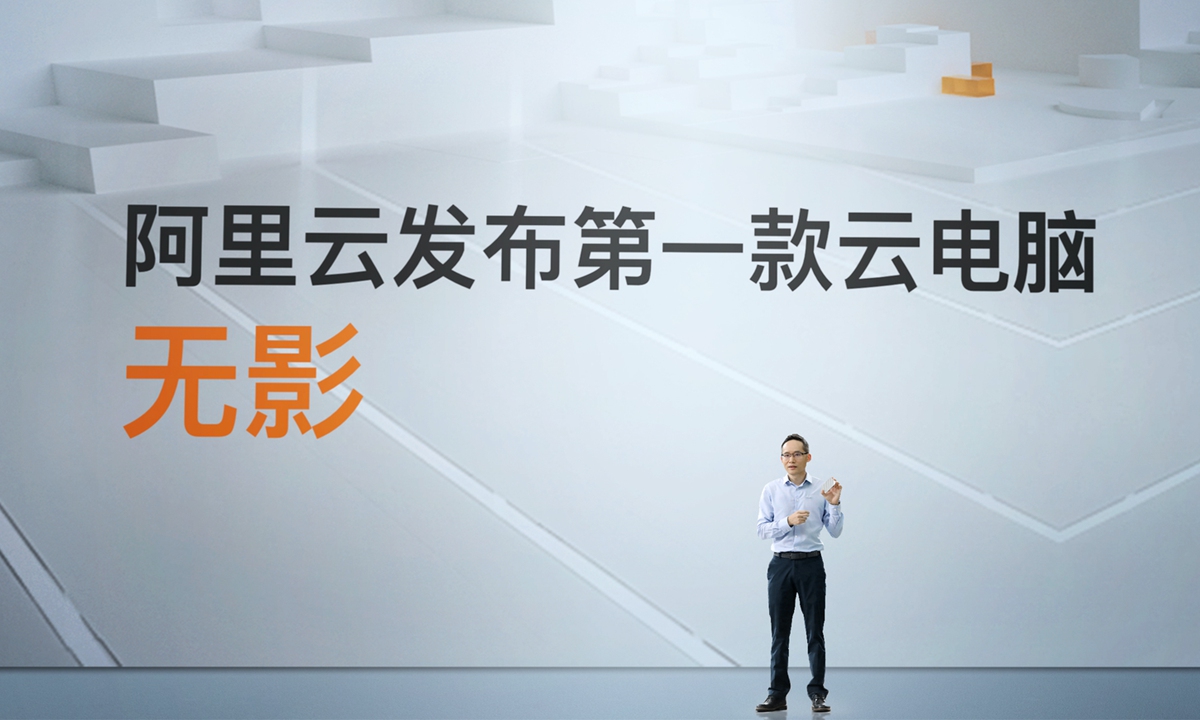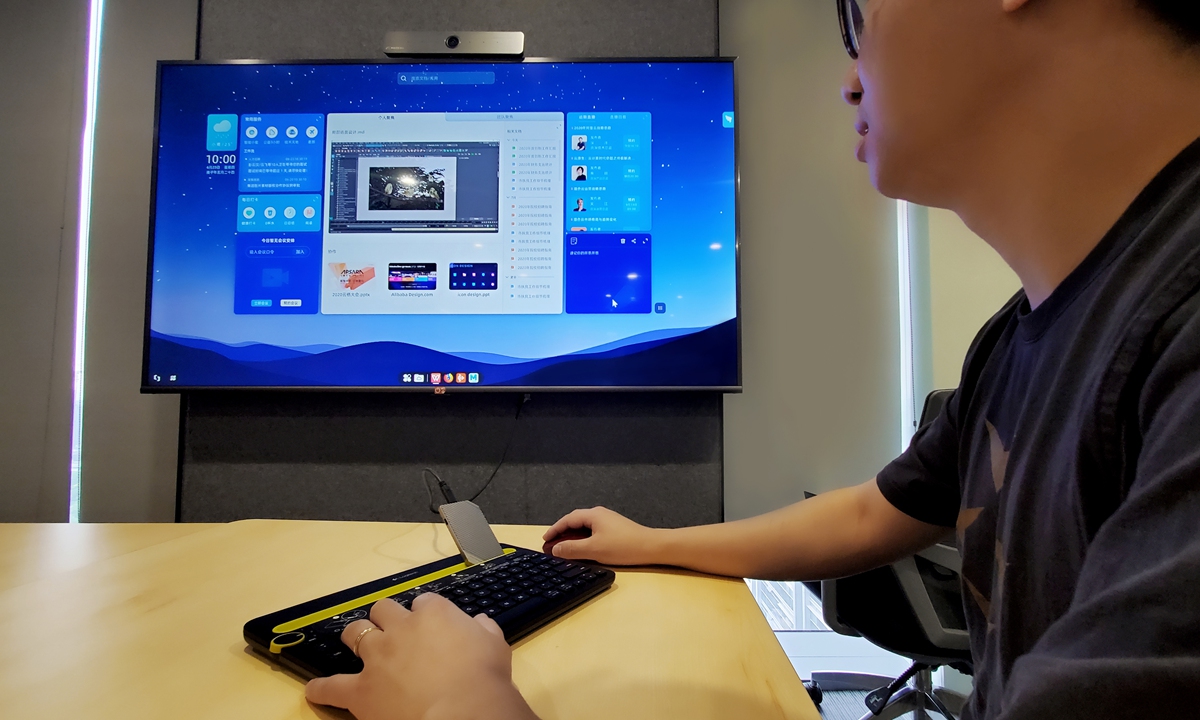
Alibaba unveiled a cloud computer named Wuying at its 2020 Apsara Conference on Thursday. Photo: Courtesy of Alibaba
Alibaba unveiled new items at its 2020 Apsara Conference including a self-driving robot for terminal logistics and a cloud computer, as the e-commerce giant wants to upgrade its cloud business to make cloud technology accessible to everyone.
At the conference, held on Thursday and Friday, Jeff Zhang Jianfeng, CTO of Alibaba Group and president of Alibaba Cloud Intelligence, unveiled a cloud computer named Wuying.
With Wuying, which is the size of a smartphone, users can run workloads on the cloud and perform complicated computing tasks that they can't do on traditional personal computers, such as rendering a video, Zhang said.
He also noted that Wuying, with the help of the cloud, has an infinite amount of computing power and is not only for personal use at home, but can also be used by governments and enterprises.
Aside from Wuying, Alibaba also unveiled a robot named Xiaomaolv as Alibaba's newest logistics solution.

Alibaba unveiled a cloud computer named Wuying at its 2020 Apsara Conference on Thursday. Photo: Courtesy of Alibaba
The robot, which has an automatic driving rate of 99.9999 percent, was described by Zhang as being able to automatically identify the trajectory of objects and planning routes. It can also determine the positions of objects at a centimeter level.
According to Alibaba, the logistics robot has multiple applications such as safety patrol, tourism guidance and pandemic prevention.
The new gadgets are part of Alibaba's efforts to upgrade its cloud business, as the company announced the launch of Alibaba Cloud 2.0, transforming it from a pure cloud platform to a compound platform that also includes digital operating systems.
Zhang said that Cloud 2.0 will be a mobile, intelligent and data-based platform that will enable more organizations and companies to migrate their workloads and run them without having to understand how to code.
Global Times
